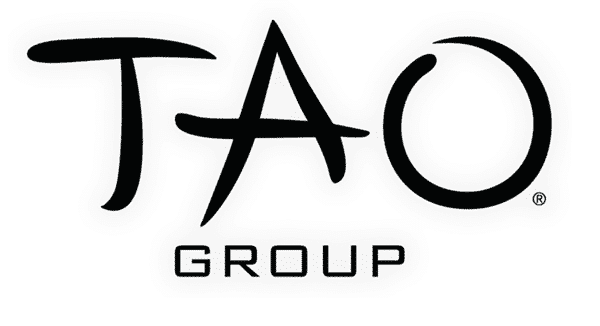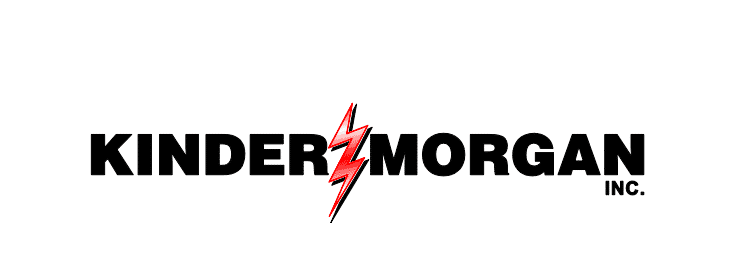In the ever-evolving world of digital marketing, two titans continually wrestle for supremacy: search engine optimization (SEO) and content marketing. Both wield immense power in driving online success, but which should you prioritize? This age-old debate often resembles the classic “seo and content marketing the chicken or the egg” dilemma. Grab a front-row seat as we delve into the heart of the matter and explore the respective merits of SEO and content marketing, ultimately revealing how to harness their combined potential for maximum impact.
Key Takeaways
Combine SEO and content marketing to maximize digital marketing efforts.
Prioritize SEO for better visibility, user experience & higher search engine rankings.
Content Marketing is a powerful tool that can help create engaging content tailored to your target audience.
The Great Debate: SEO vs. Content Marketing

It’s a hot topic that never seems to cool down. SEO strategy and content marketing strategy are both integral ingredients for online success, and many still grapple with which should garner greater attention. Focusing on a single strategy, like content marketing, guarantees streamlined rather than fragmented marketing efforts.
But how do you decide which approach suits your business best? Consider factors like your objectives, resources, competitors’ tactics, and your website’s current status. With the digital realm forming a fundamental part of any marketing strategy, SEO and content marketing stand as indispensable tools for success.
The Importance of SEO
Search Engine Optimization, or SEO, is the key that unlocks higher search engine rankings and drives organic traffic to your website. Optimizing your website and enhancing its discoverability on search engine results pages helps bolster your brand’s trust, credibility, and visibility.
An effective SEO strategy is a vital marketing tool that pinpoints the essential steps needed to climb the search engine ladder and acquire more organic traffic. With 93% of online experiences beginning with a search engine, it’s clear that targeting them with SEO is a no-brainer. Implementing various SEO strategies can further enhance your online presence and boost your website’s performance.
The Power of Content Marketing
On the flip side, content marketing centers around crafting valuable content that resonates with your target audience, keeping them engaged and coming back for more. A well-planned content strategy aligns with your business objectives and meets your customers’ needs while targeting relevant search queries.
A deep understanding of your target audience is key to crafting content that engages them and transforms them into loyal customers. From boosting website traffic to raising awareness about new products or services, content marketing offers a plethora of benefits that can help you achieve your business goals.
Understanding the Chicken and Egg Dilemma
The chicken and egg dilemma is at the heart of the SEO vs. content marketing debate, leaving marketers scratching their heads over which strategy should come first. SEO and content marketing both play vital roles in successful digital marketing, with SEO ensuring search engine visibility and content marketing fostering relationships with your target audience.
Is there, however, a method to fuse these two powerhouses for optimal impact? By aligning goals and KPIs, optimizing quality, and regularly monitoring and improving strategies, you can harness the full potential of both SEO and content marketing.
The Case for Prioritizing SEO

Some experts suggest that the pivotal role of SEO in keyword research, competitor analysis, and technical optimization makes it a priority. After all, SEO is the driving force behind organic visitors and higher search engine rankings. As such, it’s a vital component of any digital marketing strategy.
So, is the solution straightforward? Should SEO invariably take precedence? Let’s delve deeper into the key aspects that make SEO so significant.
Keyword Research as a Foundation
Keyword research serves as the bedrock for crafting content that resonates with your target audience and attracts qualified traffic. Choosing the wrong set of keywords can lead to irrelevant traffic that won’t convert, while content closely aligned with user searches increases the likelihood of turning visitors into customers.
In essence, keyword research is instrumental in unleashing your content strategy’s full potential and guaranteeing success, while avoiding the pitfalls of keyword stuffing.
Competitor Analysis for Gaining an Edge
Armed with knowledge, you can gain valuable insights from competitor analysis into the content and strategies utilized by your rivals, giving you a competitive advantage.
Examining competitors’ content for keyword ideas, link-building tactics, and marketing efforts can offer inspiration for refining your SEO approach and staying ahead of the competition.
Technical Optimization for Better User Experience
User experience (UX) fuels online success, with technical optimization being fundamental for holding onto visitors and enhancing search rankings.
From optimizing page loading speed and simplifying website navigation to ensuring mobile-friendliness, technical optimization enhances the user experience, keeping them engaged and more likely to convert.
The Case for Prioritizing Content Marketing

On the other hand, some believe that content marketing deserves the spotlight, emphasizing audience-oriented writing, algorithm adaptation, and leveraging new trends. With a content-first approach, you can tackle the drawbacks of SEO and create more engaging, relevant content that appeals to your target audience.
But is content marketing truly the better option? Let’s explore its unique strengths and advantages.
Writing for Your Audience
The key to captivating content lies in writing for your audience, ensuring it’s relevant, engaging, and tailored to their interests and needs. By understanding the demographics, interests, knowledge level, and expectations of your audience, you can craft content that resonates with them and effectively conveys your message.
Audience-centric writing ensures elevated user satisfaction and conversion rates, forming a vital aspect of content marketing.
Adapting to Algorithm Changes
The adaptability of content marketing, one of its major strengths, equips it with resilience against algorithm changes, thus making it a reliable long-term strategy.
Staying on top of algorithm changes and optimizing your content accordingly can ensure improved visibility, user experience, and search engine rankings. This adaptability makes content marketing a valuable asset in the ever-changing digital landscape.
Capitalizing on Emerging Trends
Focusing on content marketing allows businesses to stay ahead of the curve by capitalizing on emerging trends, setting them apart from the competition. Some of the latest trends to keep an eye on include:
AI (Artificial Intelligence)
IoT (Internet of Things)
5G networks
Edge computing
Keeping a finger on the pulse of these trends and utilizing tools like Google Analytics can give your content marketing strategy a significant boost.
By staying up-to-date and adapting to new trends in online marketing, content marketing ensures your business remains relevant and competitive in the digital realm.
Combining SEO and Content Marketing for Maximum Impact
Why opt for one strategy at the expense of the other when the strengths of both can be harnessed? Combining SEO and content marketing can maximize their impact by aligning goals and KPIs, balancing quality and optimization, and regularly monitoring and improving strategies.
By integrating these two powerhouses, you can achieve improved visibility, increased user engagement, and higher conversions. Let’s explore how to make this potent combination work for your business.
Aligning Goals and KPIs
A critical step in effectively combining SEO and content marketing is aligning your goals and KPIs to ensure both strategies are working towards unified objectives. This creates a cohesive and collaborative atmosphere, fostering better results and maximizing the potential of your marketing efforts.
By aligning your goals and KPIs, you can guarantee that your content is created with business objectives in mind, allowing you to measure the results effectively.
Balancing Quality and Optimization
Achieving the right balance between high-quality content and optimization techniques is fundamental to create content that is engaging for users and highly visible to search engines. This entails researching keywords, optimizing titles and meta descriptions, and using other SEO tactics to ensure content is easily discoverable.
Moreover, it involves crafting content tailored to your target audience’s interests and needs, ensuring it remains relevant and engaging. Balancing quality and optimization results in improved visibility, increased website traffic, and better customer engagement.
Regular Monitoring and Improvement
Maintaining a competitive edge and adapting to the constantly changing trends and algorithms necessitates regular monitoring and enhancement of your SEO and content marketing strategies. This can be achieved through:
Keyword research
Competitor analysis
Technical optimization
Staying informed about the latest trends and algorithm changes
By consistently tracking and refining your strategies, you can ensure that your business remains at the forefront of the digital landscape.
Summary
In conclusion, both SEO and content marketing are essential components of a successful digital marketing strategy. While the chicken and egg dilemma remains, prioritizing one over the other may not be the answer. Instead, combining the strengths of both strategies can lead to maximum impact, improved visibility, and increased user engagement. By aligning goals and KPIs, balancing quality and optimization, and regularly monitoring and improving your strategies, you can harness the full potential of SEO and content marketing, propelling your business to new heights.
Frequently Asked Questions
How to do SEO content marketing?
Research your target market, do keyword research, create great content, update content over time, make a list of topics and long-tail keywords, build pages for each topic, set up a blog, create a consistent blogging schedule, create a link-building plan, compress media files before uploading them to your site, and stay up-to-date on SEO news and best practices to effectively do SEO content marketing.
Which is the best strategy SEO or content marketing?
The best strategy is to combine SEO and content marketing – SEO helps people find your content while content marketing drives traffic and improves ranking, thus both are necessary for successful organic results.
What’s the difference between content marketing and SEO?
SEO focuses on optimizing a website and its content to rank higher in search engine results pages, while content marketing concentrates on providing value to the target audience through relevant content. While the debate focuses on SEO vs. content marketing, the reality is that both strategies should be used together for maximum success.
What is the importance of keyword research in SEO and content marketing?
Keyword research is critical for SEO and content marketing success, as it helps identify what topics are of interest to the target audience and informs the creation of content that can be effectively optimized for search engines.
How can competitor analysis help improve my SEO strategy?
Competitor analysis can help you gain an edge and refine your SEO strategy, by learning from what works for them. This allows you to identify any gaps in your own approach and stay ahead of the competition.




































